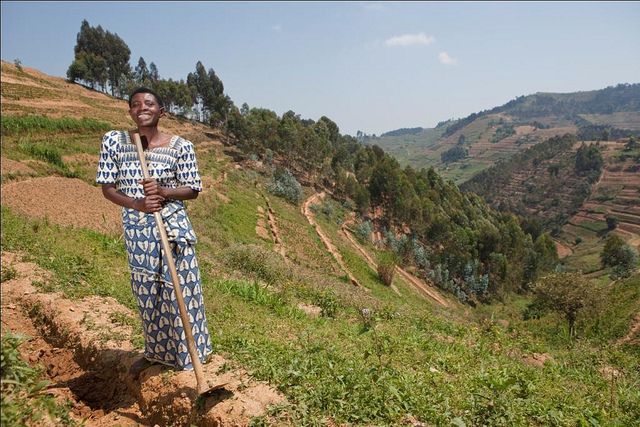When Kenyans enacted the Constitution in 2010, one of the crucial areas that we decided to focus on was land reform.Ke
The key target of this is the recognition, protection, and registration of community land rights.
It is unfortunate that land reform has now been turned into a political process that fails to respect the aspirations of the people.
It is especially disheartening that the proposals that were derived by the task force on community land have now been trashed and we are presented with land Bills that do not respect the needs of the people.
We fail to appreciate that the community land holding system exists in over 65 per cent of the Kenyan land mass, which is endowed with natural resources that are being discovered and are expected to spur economic growth.
However, the communities living in these areas depend on this land for their livelihoods.
Therefore, the gains of the recognition, protection, and registration of community land are yet to be felt.
Many communities, and especially pastoralists who rely on such land, are suffering as community land continues to be taken away from them.
We are talking about people who have never enjoyed the freedom of owning land although they have occupied it for years.
We are talking about people who have never been provided with title deeds for the land they occupy.
This is not the time to take away this land.
LAND INJUSTICES
Rather, it is the time to empower these communities and give them control over their land.
They should have a say in whether they want to continue administering it as a community or to divide it among themselves.
It is, therefore, curious that the Community Land Bill 2015, which purports to provide for the administration and management of community land, fails to establish a viable institutional framework for the governance of such land as it consolidates power in the Cabinet secretary.
The proposed structure of a registered community is severely limiting and does not lend itself to the expectations of the communities that had proposed a three-tier inverted pyramid institutional framework, in line with the social hierarchy of the community informal set-up.
The nature of the community land title in the proposed law is modelled on individualistic private tenure without regard to the flexible and inclusive nature communities hold, access, control, and use community land.
The kind of community land title that we, the leaders from the affected regions, have always proposed is best suited to work with the land use planning framework that involves the community.
We must realise that land is part of these communities' livelihoods, therefore it cannot be turned into a commercial commodity.
The proposed law diverts heavily from the proposals of the task force as it is majorly about converting community land to other categories.
The 2014 proposals had a schedule for specific conversion of public land back to community land as a way of dealing with historical land injustices.
VICTIMS OF ALIENATION
The many squatters in the coast region are victims of this alienation that resulted from converting community land into public land owned by the government.
They were then left at the mercy of the government, which went ahead to dispossess and displace them.
It is unfortunate that the Historical Land Injustices Bill that had been formulated by the National Land Commission (NLC) has been swallowed up by the Land Laws (Amendment) Bill, 2015.
The former was tailored to help Kenyans deal with the many cases of illegal and irregular allocation of community land across the country.
The National Land Commission was set up as an independent body to deal with land adjudication.
It is unfortunate that the proposed land laws are trying to take away the core mandates of the NLC and centralise them under the Cabinet secretary.
One of the reasons for land reform was to decentralise land matters to allow those who occupy land to get title deeds.
The NLC has been working on this but political interests appear to be intent on reverting land adjudication to the Cabinet secretary.
It would be prudent to withdrawal the Bills and only return them to Parliament when they have been harmonised with the views of all those affected.
By Senator Naisula Lesuuda, posted with her permission.
Originally posted on AllAfrica.

